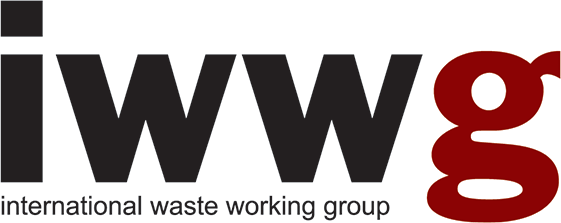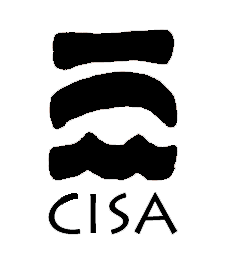MUNICIPAL SOLID WASTE: REVERSE LOGISTICS PERFORMANCE DETERMINES OPPORTUNITY COST OF BULK TIPPING
- Available online in Detritus - Volume 13 - December 2020
- Pages 160-166
Released under CC BY-NC-ND
Copyright: © 2020 CISA Publisher
Abstract
The opportunity cost concept refers to quantifying the opportunities lost upon choosing one investment option over a more economical alternative. The present study applies the concept to the process of choosing the best investment option for managing municipal solid waste. In a case study in Brazil, the options on the table are bulk collection and tipping versus reverse logistics with selective collection and sale of recovered components. The use of relative monetary values renders the results general and applicable in other scenarios. The bulk tipping option represents the reference cost of 100. The research postulates a linear relation between the opportunity cost of bulk tipping (y) and the efficiency of reverse logistics operations (x). Zero efficiency means bulk collection and tipping of all waste. Full efficiency means capture of all recyclable items, which in the case study amount to 80% of waste. Various intermediate points confirm the relationship that takes the form y=0.968x. The result shows that opportunity cost is dynamic in as much as changes of technologies and administrative procedures move it along that line. It also illustrates to municipal administrations the immediate economic effect of implementation and stepwise improvement of reverse logistics.Keywords
- dynamic opportunity cost
- landfill diversion
- municipal solid waste
- opportunity cost of landfill
- reverse logistics efficiency
Editorial History
- Received: 05 Jun 2020
- Revised: 29 Aug 2020
- Accepted: 11 Sep 2020
- Available online: 28 Dec 2020
References
Allenare, E; Gomes, M. A. 1998, Metodologia de pesquisa social e diagnóstico participativo (Social research methodology and participative diagnosis), UFLA/FAEPE, Lavras, Brazil
Beuren, I. M. 1993, Conceituação e contabilização do custo de oportunidade (Conceptualization and use in accounting of the opportunity cost), FIPECAFI – Caderno de Estudos, nº08, São Paulo, Brazil
Brazil 2007. Law nº 11.445 on basic sanitation, http://www.planalto.gov.br/ccivil_03/_ato2007-2010/2007/lei/l11445.html, Access 2016 04 15
Brazil 2010. Law nº 12.305 on the national policy for solid waste. http://www.planalto.gov.br/ccivil_03/_ato2007-2010/2010/lei/l12305.htm Access 2011 10 13
Brazil 2014. Ministry of Cities. National Information System on Sanitation. Diagnosis of urban waste management. http://www.snis.gov.br/diagnostico-residuos-solidos Access 2016 03 19
Buchanan, J.M. 2015, Opportunity Cost, The New Palgrave Dictionary of Economics, http://www.link.springer.com/referenceworkentry/10.1057%2F978-1-349-95121-5_1433-2 (access 2019 08 20)
Fehr, M. 2012, Zero waste in the apartment: we made it (invited forum paper), International Journal of Environment and Waste Management, Inderscience International, ISSN 1478 9876 (print) and 1478 9868 (electronic) , vol. 10 no. 1 paper 9 pp. 112-113,
DOI 10.1504/IJEWM.2012.048159
Fehr, M. 2014, Register now for the residue world cup (guest editorial) Waste Management & Research, The official journal of ISWA SAGE Publications International ISSN 0734 242X eISSN 1096 3669 vol. 32 no. 9 supplement pp. 1-2,
DOI 10.1177/0734242X14537869
Fehr, M. 2016A reciclagem de resíduos biodegradáveis municipais é viável (artigo convidado), (Recycling of biodegradable municipal residue is viable (invited paper), Ciência & Cultura, ISSN 2317-6660, SBPC Sociedade Brasileira para o Progresso da Ciência BR, Vol. 68 no. 4 pp. 44-45 outubro – dezembro 2016,
DOI 10.21800/2317-66602016000400014
Foote-Whyte, W. 1990, Treinando a observação participante (Training participative observation), In: GUIMARÃES, Alba Zaluar. Desvendando máscaras sociais, Third edition, Francisco Alves, Rio de Janeiro, Brazil, pp. 77-86
Gil, A. C. 2006, Métodos e técnicas de pesquisa social (Methods and techniques of social research), Fifth edition, Atlas, São Paulo, Brazil
Godoy, A. S. 1995, Introdução à pesquisa qualitativa e suas possibilidades (Introduction to qualitative research and its possibilities) RAE, São Paulo, Brazil, v. 35, n. 2, p. 57-63, March/April
New Oxford American Dictionary 2019, http://www.oxfordreference.com (access 2019 08 20)
Pereira, A. C. et. al. 1990, Custo de Oportunidade: Conceitos e Contabilização (Opportunity cost: concept and accounting), FIPECAFI Caderno de Estudos nº 02, São Paulo, Brazil
Santos, R. V. 2000, Aplicação do custo de oportunidade às decisões de preço de renda sob o enfoque do custeio direto (Application of opportunity cost to determining rental prices), Iob Informações Objetivas Temática Contábil e Balanços
Veiga, R.M. 2019, From dumpsites to the circular economy, Ph.D. thesis, Federal University at Uberlândia MG Brazil
Wieser, F. von, 1851-1926, School of Vienna, mentioned in Pereira 1990
Yin, R. K. 2001, Estudo de caso: planejamento e métodos (Case study: planning and methods), Second edition, Bookman, Porto Alegre, Brazil
Zero Waste International Alliance 2019, http://www.zwia.org (access 2019 08 15)




